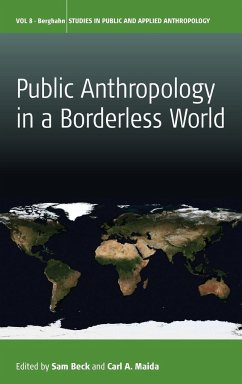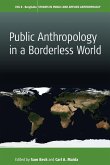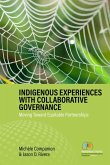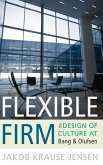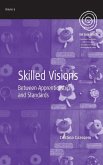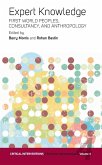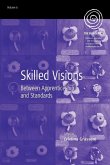Public Anthropology in a Borderless World
Herausgeber: Beck, Sam; Maida, Carl A.
Public Anthropology in a Borderless World
Herausgeber: Beck, Sam; Maida, Carl A.
- Gebundenes Buch
- Merkliste
- Auf die Merkliste
- Bewerten Bewerten
- Teilen
- Produkt teilen
- Produkterinnerung
- Produkterinnerung
Articulates how public engagement is transforming the discipline of anthropology. Includes perspectives from contributors on their personal and professional transformations.
Andere Kunden interessierten sich auch für
![Public Anthropology in a Borderless World Public Anthropology in a Borderless World]() Public Anthropology in a Borderless World43,99 €
Public Anthropology in a Borderless World43,99 €![Flexible Firm Flexible Firm]() Jakob Krause-JensenFlexible Firm38,99 €
Jakob Krause-JensenFlexible Firm38,99 €![Indigenous Experiences with Collaborative Governance Indigenous Experiences with Collaborative Governance]() Indigenous Experiences with Collaborative Governance145,99 €
Indigenous Experiences with Collaborative Governance145,99 €![Flexible Firm Flexible Firm]() Jakob Krause-JensenFlexible Firm131,99 €
Jakob Krause-JensenFlexible Firm131,99 €![Skilled Visions Skilled Visions]() Skilled Visions132,99 €
Skilled Visions132,99 €![Expert Knowledge Expert Knowledge]() Expert Knowledge18,99 €
Expert Knowledge18,99 €![Skilled Visions Skilled Visions]() Skilled Visions37,99 €
Skilled Visions37,99 €-
-
-
Articulates how public engagement is transforming the discipline of anthropology. Includes perspectives from contributors on their personal and professional transformations.
Produktdetails
- Produktdetails
- Verlag: Berghahn Books
- Seitenzahl: 414
- Erscheinungstermin: 1. Juli 2015
- Englisch
- Abmessung: 235mm x 157mm x 27mm
- Gewicht: 748g
- ISBN-13: 9781782387305
- ISBN-10: 1782387307
- Artikelnr.: 42794404
- Herstellerkennzeichnung
- Libri GmbH
- Europaallee 1
- 36244 Bad Hersfeld
- gpsr@libri.de
- Verlag: Berghahn Books
- Seitenzahl: 414
- Erscheinungstermin: 1. Juli 2015
- Englisch
- Abmessung: 235mm x 157mm x 27mm
- Gewicht: 748g
- ISBN-13: 9781782387305
- ISBN-10: 1782387307
- Artikelnr.: 42794404
- Herstellerkennzeichnung
- Libri GmbH
- Europaallee 1
- 36244 Bad Hersfeld
- gpsr@libri.de
Carl A. Maida is Professor in the Institute of the Environment and Sustainability and Director of the Pre-College Science Education Program at the University of California, Los Angeles. His publications include Sustainability and Communities of Place (2007) and Pathways through Crisis: Urban Risk and Public Culture (2008).
List of Illustrations
Introduction
Carl A. Maida and Sam Beck
Chapter 1. Community-Based Research Organizations: Co-constructing Public
Knowledge and Bridging Knowledge/Action Communities through Participatory
Action Research
Jean J. Schensul
Chapter 2. Crossing the Line: Participatory Action Research in a Museum
Setting
Alaka Wali and Madeleine Tudor
Chapter 3. Monitoring the Commons: Giving "Voice" to Environmental Justice
in Pacoima
Carl A. Maida
Chapter 4. Political-Ethical Dilemmas Participant Observed
Josiah McC. Heyman
Chapter 5. Public Anthropology and Structural Engagement: Making
Ameliorating Social Inequality Our Primary Agenda
Merrill Singer
Chapter 6. Public Anthropology and the Transformation of Anthropological
Research
Louise Lamphere
Chapter 7. Public Anthropology and Its Reception
Judith Goode
Chapter 8. Anthropology for Whom? Challenges and Prospects of Activist
Scholarship
Angela Stuesse
Chapter 9. "We Are Plumbers of Democracy": A Study of Aspirations to
Inclusive Public Dialogues in Mexico and Its Repercussions
Raúl Acosta
Chapter 10. What Everybody Should Know about Nature-Culture: Anthropology
in the Public Sphere and "The Two Cultures"
Thomas Hylland Eriksen
Chapter 11. Reimagining the Fragmented City/Citizen: Young People and
Public Action in Rio de Janeiro
Udi Mandel Butler
Chapter 12. Urban Transitions: Graffiti Transformations
Sam Beck
Chapter 13. Recreating Community: New Housing for Amui Djor Residents
Tony Asare, Erika Mamley Osae, and Deborah Pellow
Notes on Contributors
Introduction
Carl A. Maida and Sam Beck
Chapter 1. Community-Based Research Organizations: Co-constructing Public
Knowledge and Bridging Knowledge/Action Communities through Participatory
Action Research
Jean J. Schensul
Chapter 2. Crossing the Line: Participatory Action Research in a Museum
Setting
Alaka Wali and Madeleine Tudor
Chapter 3. Monitoring the Commons: Giving "Voice" to Environmental Justice
in Pacoima
Carl A. Maida
Chapter 4. Political-Ethical Dilemmas Participant Observed
Josiah McC. Heyman
Chapter 5. Public Anthropology and Structural Engagement: Making
Ameliorating Social Inequality Our Primary Agenda
Merrill Singer
Chapter 6. Public Anthropology and the Transformation of Anthropological
Research
Louise Lamphere
Chapter 7. Public Anthropology and Its Reception
Judith Goode
Chapter 8. Anthropology for Whom? Challenges and Prospects of Activist
Scholarship
Angela Stuesse
Chapter 9. "We Are Plumbers of Democracy": A Study of Aspirations to
Inclusive Public Dialogues in Mexico and Its Repercussions
Raúl Acosta
Chapter 10. What Everybody Should Know about Nature-Culture: Anthropology
in the Public Sphere and "The Two Cultures"
Thomas Hylland Eriksen
Chapter 11. Reimagining the Fragmented City/Citizen: Young People and
Public Action in Rio de Janeiro
Udi Mandel Butler
Chapter 12. Urban Transitions: Graffiti Transformations
Sam Beck
Chapter 13. Recreating Community: New Housing for Amui Djor Residents
Tony Asare, Erika Mamley Osae, and Deborah Pellow
Notes on Contributors
List of Illustrations
Introduction
Carl A. Maida and Sam Beck
Chapter 1. Community-Based Research Organizations: Co-constructing Public
Knowledge and Bridging Knowledge/Action Communities through Participatory
Action Research
Jean J. Schensul
Chapter 2. Crossing the Line: Participatory Action Research in a Museum
Setting
Alaka Wali and Madeleine Tudor
Chapter 3. Monitoring the Commons: Giving "Voice" to Environmental Justice
in Pacoima
Carl A. Maida
Chapter 4. Political-Ethical Dilemmas Participant Observed
Josiah McC. Heyman
Chapter 5. Public Anthropology and Structural Engagement: Making
Ameliorating Social Inequality Our Primary Agenda
Merrill Singer
Chapter 6. Public Anthropology and the Transformation of Anthropological
Research
Louise Lamphere
Chapter 7. Public Anthropology and Its Reception
Judith Goode
Chapter 8. Anthropology for Whom? Challenges and Prospects of Activist
Scholarship
Angela Stuesse
Chapter 9. "We Are Plumbers of Democracy": A Study of Aspirations to
Inclusive Public Dialogues in Mexico and Its Repercussions
Raúl Acosta
Chapter 10. What Everybody Should Know about Nature-Culture: Anthropology
in the Public Sphere and "The Two Cultures"
Thomas Hylland Eriksen
Chapter 11. Reimagining the Fragmented City/Citizen: Young People and
Public Action in Rio de Janeiro
Udi Mandel Butler
Chapter 12. Urban Transitions: Graffiti Transformations
Sam Beck
Chapter 13. Recreating Community: New Housing for Amui Djor Residents
Tony Asare, Erika Mamley Osae, and Deborah Pellow
Notes on Contributors
Introduction
Carl A. Maida and Sam Beck
Chapter 1. Community-Based Research Organizations: Co-constructing Public
Knowledge and Bridging Knowledge/Action Communities through Participatory
Action Research
Jean J. Schensul
Chapter 2. Crossing the Line: Participatory Action Research in a Museum
Setting
Alaka Wali and Madeleine Tudor
Chapter 3. Monitoring the Commons: Giving "Voice" to Environmental Justice
in Pacoima
Carl A. Maida
Chapter 4. Political-Ethical Dilemmas Participant Observed
Josiah McC. Heyman
Chapter 5. Public Anthropology and Structural Engagement: Making
Ameliorating Social Inequality Our Primary Agenda
Merrill Singer
Chapter 6. Public Anthropology and the Transformation of Anthropological
Research
Louise Lamphere
Chapter 7. Public Anthropology and Its Reception
Judith Goode
Chapter 8. Anthropology for Whom? Challenges and Prospects of Activist
Scholarship
Angela Stuesse
Chapter 9. "We Are Plumbers of Democracy": A Study of Aspirations to
Inclusive Public Dialogues in Mexico and Its Repercussions
Raúl Acosta
Chapter 10. What Everybody Should Know about Nature-Culture: Anthropology
in the Public Sphere and "The Two Cultures"
Thomas Hylland Eriksen
Chapter 11. Reimagining the Fragmented City/Citizen: Young People and
Public Action in Rio de Janeiro
Udi Mandel Butler
Chapter 12. Urban Transitions: Graffiti Transformations
Sam Beck
Chapter 13. Recreating Community: New Housing for Amui Djor Residents
Tony Asare, Erika Mamley Osae, and Deborah Pellow
Notes on Contributors

